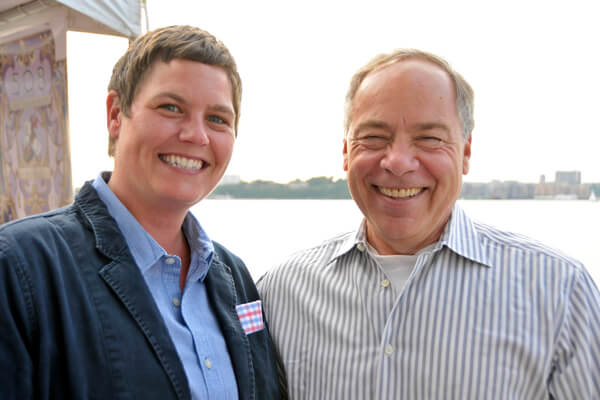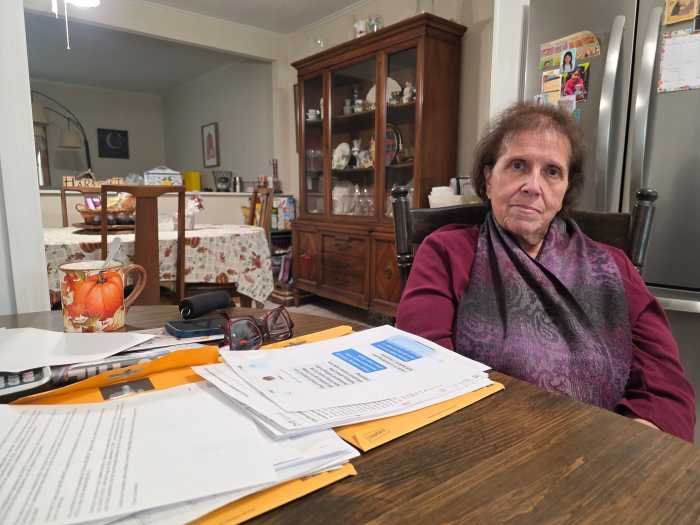Underscoring its commitment to finally winning approval of a transgender civil rights law in New York State, the Empire State Pride Agenda (ESPA), the LGBT community’s leading lobby group in Albany, has announced a $300,000 grant from the Calamus Foundation, which funds HIV and LGBT services, to support its educational efforts focused on gender identity and expression issues.
“The Calamus Foundation is recognizing that we are at a tipping point” in terms of attitudes toward transgender rights in the state, Lynn Faria, ESPA’s interim executive director, told Gay City News on May 31, the day the grant was announced. “It sends an important message to other funders in the community.”
New York enacted a gay rights law in 2002, but the measure did not provide protections based on gender identity and expression out of a political concern that broadening the bill might jeopardize its passage.
The Pride Agenda’s chairman, Louis Bradbury, also serves on the Calamus board, as does his fellow ESPA board member Jeff Soref. Calamus’ decision to fund the Pride Agenda’s transgender efforts, then, will likely serve to assure the trans community, frustrated and impatient over the long delay in moving the Gender Expression Non-Discrimination Act (GENDA), that ESPA is committed to getting the job done.
In its press release announcing the grant, the Pride Agenda implicitly acknowledged the anger felt by some in the trans community over the fact that marriage equality leapfrogged over GENDA in 2011 when Governor Andrew Cuomo basked in remarkably high approval ratings.
“Following a winning campaign last year to win marriage equality for all New Yorkers,” the release read, “the state’s leading lesbian, gay, bisexual and transgender rights organization, the Empire State Pride Agenda, is advancing the passage of the Gender Expression Non-Discrimination Act, their top legislative priority.”
Faria, in the release, said, “It’s high time that New York State joined the 16 states and the District of Columbia that provide basic civil rights protections for all their residents, regardless of gender expression or identity.”
She noted that “one of the marriage campaign’s most successful strategies invested in education and building public awareness across the state.”
The Calamus money is restricted to educational and general advocacy efforts and cannot be used in direct lobbying of Albany legislators.
Faria pledged that the model employed in the marriage fight “will be replicated in the public campaign to build support for transgender civil rights.”
As in the marriage fight, ESPA is sponsoring forums in communities and congregations across the state at which transgender New Yorkers are telling their stories to neighbors. In an effort dubbed Trans Scribe, those involved in the GENDA push are documenting their experiences with discrimination across the state. A 2011 study completed by the National Center for Transgender Equality and the National Gay and Lesbian Task Force demonstrated that three out of four transgender New Yorkers had been the victims of harassment or mistreatment on the job.
“We always try to mount a strong inside game and a strong outside campaign,” Faria said of the importance of both lobbying and public education.
She also noted that, as with other sexual orientation non-discrimination protections, corporate America has been ahead of government. Macy’s, she said, has begun a program to better serve transgender customers, an example of enlightened corporate self-interest.
Asked to speculate on the timing of GENDA moving in the Legislature and the amount of political muscle Cuomo might put into the effort, Faria would only say, “The governor has publically stated his support of GENDA. Our job as advocates is to work on the inside to advance the issue in Albany.”
In a June 8 interview with Gay City News, City Council Speaker Christine Quinn, acknowledging the bill would not get a vote this year, said she had not yet spoken to the governor about priorities in next year’s legislative session.
Over the past year, Calamus has raised its visibility as a funder in the community, providing grants totaling $1 million to the Ali Forney Center, Green Chimneys, the Door, and Safe Horizon, all of which serve homeless queer youth.



































